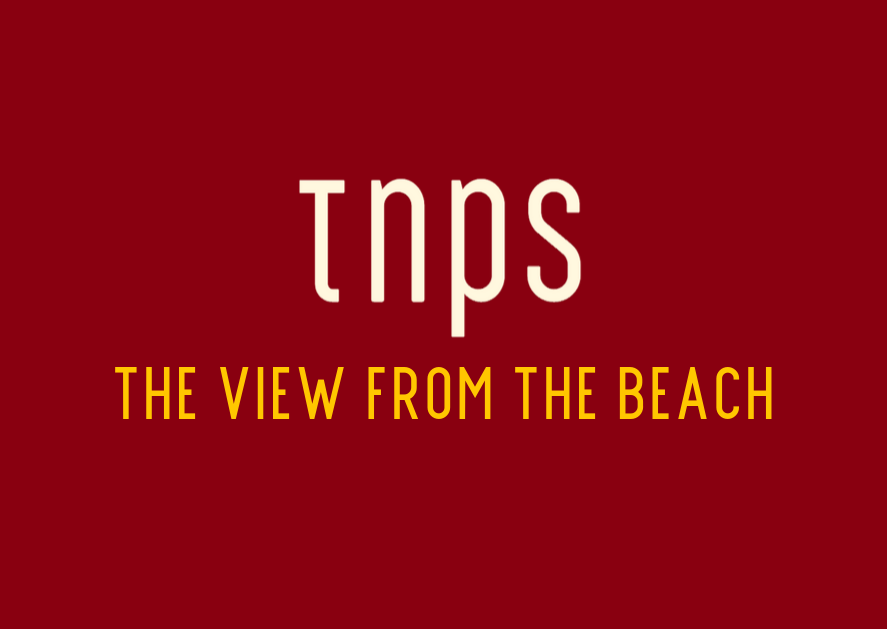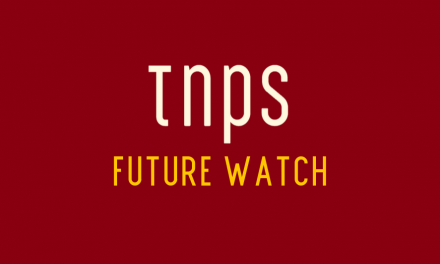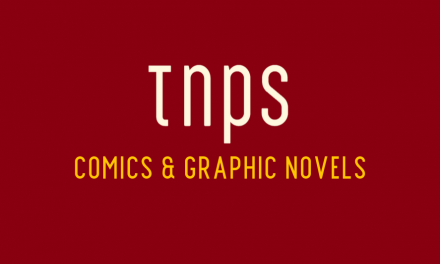“Not only does AI liberate time, it also replaces an old equation—that wisdom flows from learning and experience—with new, instantly accessible “general wisdom”. Gen Z are “streamers”, not “hard diskers”; they are ready-made to work with AI in ways no previous generation comprehends.” – Nadim Sadek.
If it’s the first week of January, it must be publishing industry predictions time, and it will come as no surprise that AI features in predictions everywhere.
Not that TNPS has much time for predictions. Forecasts are what we are into, based on objective realities, not wishful thinking and crystal balls.
Sadly, wishful thinking about maintaining the status quo dominates a lot of the selection of “predictions” collated by the UK trade journal The Bookseller this week. “I wish AI would go away.” “I wish nothing ever changed.” “I wish for the golden age of steam.” Industries don’t get much more conservative than publishing.
But here’s the thing: Replace “AI” with “paperbacks”, “word-processing”, “self-publishing”, “email submissions”, “ebooks”, “social media”, “television” or whatever yesteryear’s publishing bogeyman du jour was, and it would be the same tired old arguments.
It reminds me of the miners’ strikes when men would fight for the right to die of pneumoconiosis and silicosis. Or the printers out all night picketing the new tech printing offices that – shock! horror! – were printing newspapers sat at a desk in front of a screen instead of a pair of tweezers setting metal type.
And be in no doubt this was a highly skilled profession. These were not interchangeable skills. Not just jobs, but careers were on the line. Families faced destitution.
Luckily the publishing industry – news and books alike – stood in solidarity, refusing to have anything to do with these heinous new technologies threatening to undo the very fabric of society. We are the industry that cares!
And of course I remember all the authors and publishers on the streets protesting against word-processors at home, and email submissions, and… Those poor typewriter factory workers will be out of a job! And those poor postmen and big brown envelope makers! What will become of them and their families?
Milkmen and milkmaids? Candlestick makers, switchboard operators and lamp-lighters? Chimney sweeps and Morse code experts sending telegrams? Steam locomotive engineers, bus conductors, horse and carriage drivers, blue Police box makers, quill pen manufacturers and video cassette makers, film projectionists and cashiers in DVD stores… It’s decades since I last had a good night’s sleep, I’ve been so worried about how they fared when their jobs were destroyed by technological advances that no-one wanted, and that brought no benefits to society.
So of course, I sympathised totally with the Luddite fringe in The Bookseller‘s predictions list. They are soooo right! Publishing industry jobs are special. Nothing can replace what we do. Nothing can replace our revered authors and illustrators and narrators and translators and our company employees. AI can never write something as good as a human.
That’s why we pay the former such lousy advances and royalty rates, and sack our employees whenever it suits us.
And that’s why we say to AI, “Bring it on! Nobody will ever read your machine-contrived prose! Nobody will be fooled by your imitation writing! Oh, and by the way, AI books should be banned, just in case, and they should be labelled AI just in case some poor human thinks they were written by another human.”
You see, firing someone is just fine. Paying royalty rates and advances so only a handful of writers can feed their families is just fine. But losing a job through AI?! The sky is falling!
Not that everyone in The Bookseller‘s predictions roundup was a direct ancestor of Ned Ludd. There were some positive notes, even from the Big 5 publishers.
This from David Shelley, CEO of Hachette UK, among the more progressive of the Big 5 CEOs:
“I think the conversation about generative AI is going to become more detailed and nuanced in 2024 and my hope is that the collective force of authors, publishers, agents and others in the creative industries can help to harness ways to use AI to reach new readers for original work while also ensuring that the unique power of human creativity continues to be valued.“
While in the Luddite corner, PRH UK CEO Tom Weldon, best known perhaps for explaining how nobody wanted book streaming (“Eat everything you can’ isn’t a reader’s mindset. In music or film you might want 10,000 songs or films, but I don’t think you want 10,000 books”), hedged his bets with a classic industry double-speak statement on AI.
“The opportunities and threats that AI presents will be omnipresent. While we will face into these issues as individual companies, there will also be moments where we need to come together as an industry, and the role of the Publishers Association will be invaluable in that.“
Some fine double-speak there. “Opportunities and threats“, says Weldon, but whoever heard of the “need to come together as an industry” to face an opportunity?
Balancing the act, HarperCollins UK CEO Charlie Redmayne kept it short and sweet, but put clear blue water between the positions of HC and PRH: “We will continue to use AI to optimise our processes to enable our books to reach readers. Those that innovate and invest will see rewards – many of them very quickly.”
While in the Over My Dead Body camp, Pan Macmillan CEO Joanna Prior stayed as much on the fence as she dared: “The publishing industry…has made a superb case to government for copyright to be protected as Big Tech develop their generative AI offerings. Meanwhile I hope and expect we will see some innovative uses of AI, too, as publishers embrace its possibilities.“
And Simon & Schuster UK CEO Ian Chapman, perhaps not sure what the KKR policy is on AI, managed a list of “concerns” for 2024 and didn’t mention AI once!
Elsewhere there was cause for optimism. I loved this from Vidisha Biswas, MD of Footnote Press:
“This year will continue to drive home the power of AI to completely transform the industry. Implemented strategically and sustainably, AI can help alleviate workloads and ultimately enhance human creativity. There is going to be so much uncharted territory to explore next year using AI, and Footnote intends to be at the forefront of this.”
Similarly, Bonnier UK CEO Perminder Mann had this to say:
“I hope we will see the industry begin to embrace AI’s potential as the technology becomes part of our day-to-day systems and processes, supporting our colleagues and freeing up their capacity to focus on great publishing, while protecting the rights of our authors and creators.”
And interestingly, Paul Kelly CEO at DK, owned by PRH, seems not to be in tune with the Dohle-Weldon era golden age of steam resist-change movement:
“We need to get our heads around generative AI and how we harness this technology for good. It’s incredible to see how rapid the advancements have been in the past 12 months. This technology has the ability to unlock a new wave in human creativity, but we must also ensure that we are developing sustainable and ethical practices; particularly with regards to copyright and protecting creators’ rights and incomes.”
Memo to Nihar Malaviya: Give this guy a raise!
On the fence, leaning towards the Luddites, Publishers Association CEO Dan Conway acknowledges AI to be “the most transformative technology of recent times (offering) many benefits to the sector. However, fundamental questions remain around transparency and copyright.“
Nothing to disagree with there, but too, nothing to get excited about. Conway’s approach is the epitome of middle-industry thinking. Keep all new developments at arms length, watch carefully, pay lip-service to both sides because we don’t know who the winner will be, and jump on the bandwagon once someone else has taken the risks and proved the worth.
Flying the Luddite flag was, of course, Nicola Solomon, retiring CEO of the Society of Authors.
Actually, on this occasion Solomon sounded almost reasonable. “We’ll continue to press for transparency, credit, control and compensation for our members and to inform them of the opportunities and risks of the new technologies.”
No mention here of how 43% of writers jobs will be lost to AI, as she asserted in November 2023.
That was FutureBook ’23, where Solomon was in full Luddite mode. “Authors offer human creativity — something which is in demand and that AI cannot compete with.” So why are you panicking about AI taking jobs?
Solomon also asserted, per The Bookseller‘s report at the time, that “the language used around AI is important, since machines should not be humanised.”
Seriously, is she that s**t-scared of AI? Earth calling Nicola. This is not HAL 2000. Or M3GAN.
But I’ll allow that conversations with AI can be disconcerting.
I asked CoPilot about Solomon’s concerns for the publishing industry. This is what AI had to say: “Solomon’s concerns about AI in publishing are valid and should be taken seriously. It is important to ensure that creators are fairly compensated for their work and that their rights are protected in the age of AI.“
Alongside Solomon in the Luddite camp was Catherine Clarke (MD Felicity Bryan Associates/president, AAA, per The Bookseller):
“We have been shocked at revelations of the unfettered infringement of authors’ copyrights by generative AI, and the trade has been galvanised to highlight this dangerous undermining of human creativity to legislators.”
And of course this was accompanied by a long list of proven examples of unfettered copyright infringement by AI companies.
No, of course it wasn’t, because there are none. There are, aside from the New York Times ambulance-chase, a handful of cases currently before the Courts, none of which yet have delivered a verdict against an AI company, and in most cases the judge has told them to go away and rethink their arguments.
As and when a court of law rules AI companies have breached copyright on a massive scale as alleged, then is the time to be shocked, although how this is “dangerous” is beyond me. Maybe Catherine Clarke and Nicola Solomon get together of a weekend and break out the popcorn while re-watching M3GAN to keep their righteous indignation at boiling point.
What we do have is individuals using AI to infringe copyright. Copyright infringement has been going on since forever. Let’s haul Bill Gates across the coals for giving us the MS Word copy and paste feature, responsible for more copyright infringements than AI will ever manage. Let’s haul IBM and every other photocopier manufacturer across the coals for copyright infringement.
“Shocked at revelations”? Here’s a shocking revelation for you. I’m writing this while naked under my clothes!
But let me end this post with the voice of AI sanity, Nadim Sadek. As CEO of Shimmr AI, Sadek obviously has an interest in presenting AI in a positive light, but his insights go way beyond the self-interest of commercial enterprise, and demonstrates an understanding of the bigger picture emerging that few in our industry seem close to.
That this is not just transformative at the level of industry, but at the level of society and that goes to the heart of my headline for this post: Gen Z vs Generation One Foot In The Grave.
“Gen Z influence, powered by AI. That’s the big change we’ll witness, in publishing and society. Gen Z influencers and young leaders emerging in publishing will commission and enable assertive, innovative writing, asking fundamental questions about how Earth should revolve. New ideas, expressed in original terms, will flourish.”
That, of course, is what scares so many. Generative AI and Gen Z. The biggest threat to the status quo ever.
Sadek: “In 2024, (the AI) revolution offers us the opportunity to do our work in half the time. The question is inescapable: what should we do with our newly released lives? Double the work and economic efficiencies of companies and countries? Or find new methods of defining worth in our existence?“
Now come on, be serious. Who else in the publishing industry is talking in these terms? Sadek is not out to sell a service. That’s a bonus for him, sure, but this is not about Shimmr AI. This is about transformational societal change that is happening at breakneck speed and will impact every aspect of our lives.
This is not Beware the Future, It’s Closer Than We Think.

This is Beware The Future, It’s Already Here And Is About To Leave Us Behind.
Explains Sadek: “Not only does AI liberate time, it also replaces an old equation—that wisdom flows from learning and experience—with new, instantly accessible “general wisdom”. Gen Z are “streamers”, not “hard diskers”; they are ready-made to work with AI in ways no previous generation comprehends. Thought becomes more important than retention.“
There’s a whole ‘nother op-ed right there in that paragraph, that you can be sure I’ll be exploring soon. When I’m not writing TNPS I’m a teacher, and I’m working with Generation Alpha, kids that will never have known an existence before Gen AI. And it’s beyond exciting. When I look into these little kids’ eyes I see the future. You don’t need sci-fi movies to understand the future is here. Just look deep into the eyes of a three year old.
“For literature,” says Sadek, referring to Gen Z, “this is exciting! It could be the new Renaissance.”
A Global New Renaissance, to be exact.

Those were my words back in September 2017, when TNPS launched, and my very first essay touched on AI among many other topics. I concluded then, and am happy to repeat today:
“We are witnesses to, and participants in, the early stages of a Global New Renaissance quite unparalleled in human history. And the journey is just beginning.”
This post first appeared in the TNPS LinkedIn Pulse newsletter.





